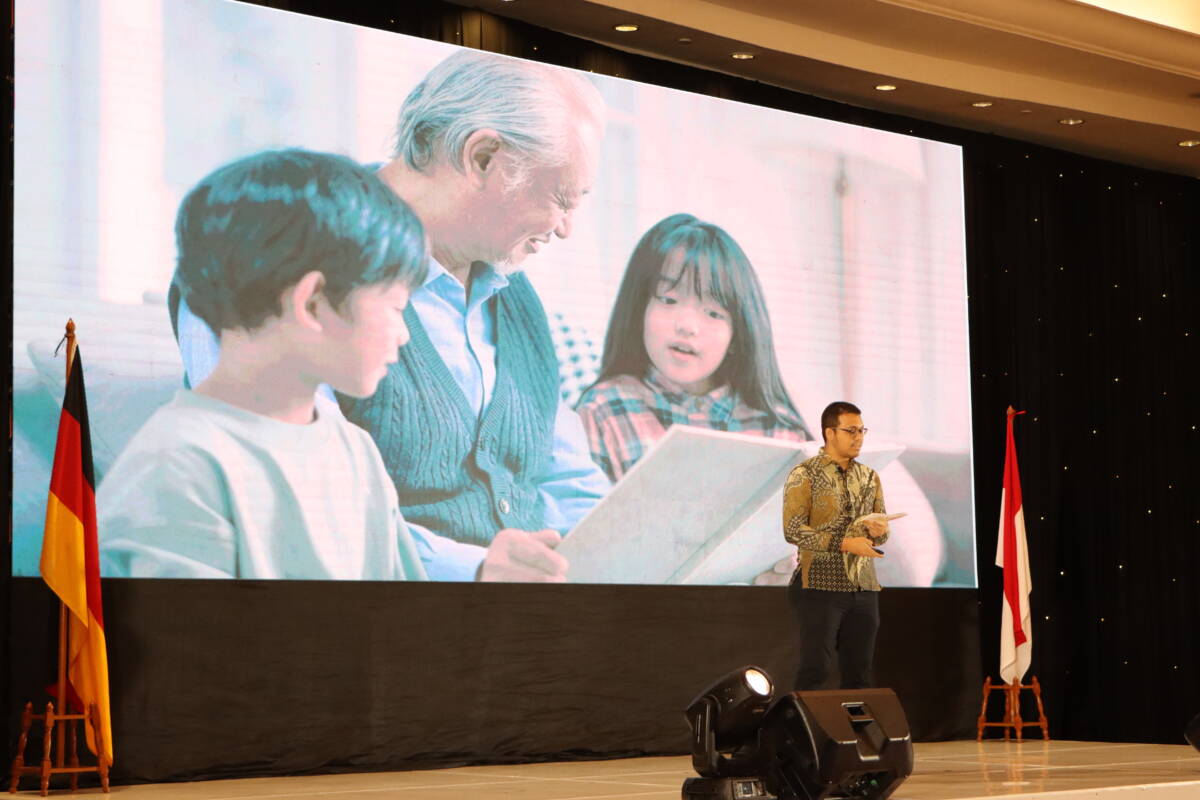Jakarta, September 13, 2024 – Community involvement, including vulnerable groups, must be a significant aspect of implementing the just or equitable transition. It must be accompanied by a proper understanding of the just transition to mobilize community support and participation. Various methods of raising public awareness about the energy transition can be done, from developing inspirational stories to taking small actions to reduce emissions collectively.
Taufiq Hidayat Putra, Director of Electricity, Telecommunications and Informatics, Ministry of National Development Planning/Bappenas stated that political communication is very important in long-term development plans. Inclusive and participatory approaches need to be strengthened to ensure that energy transition policies are understood by all levels of society.
“The recommendations made in the ISEW 2024 discussion will be an input for a more holistic and integrative plan, especially in the preparation of the RPJMN 2025-2029 related to Improving Connectivity and Electric Energy Transition. Especially to achieve a sustainable electricity energy system. By considering the potential of regional resources in line with regional development and national development,” Taufiq said.
Agus Tampubolon, Project Manager of Clean, Affordable, and Secure Energy (CASE) for Southeast Asia, Institute for Essential Services Reform (IESR), said that inspiring stories about climate action and energy transition have the power to unite purpose and motivate collective action in shaping a sustainable future.
“Everyone is a steward of the earth, and I believe each individual has an inspiring story to tell and can take action that brings positive change to our planet. These stories need to be echoed to create a strong collective voice to build a sustainable and just world,” Agus said at ISEW 2024 (13/09/2024).
Agus explained that even small actions taken together, such as planting trees, cycling to school, and turning off lights when not in use, can significantly reduce emissions. According to him, the most important thing is for everyone to take responsibility for freeing the earth from the grip of emissions that have increased global temperatures, causing the climate crisis.
Puty Puar, Founder and Executive Director of Buibu Baca Buku, who was also present at ISEW 2024, revealed that so far, mothers have rarely been involved in the energy transition agenda, so their voices on this issue have been silenced and less heard. In fact, according to her, mothers are the group most affected by climate change and policy changes in the energy sector.
“In fact, in everyday situations, for example, when there is a power outage, mothers feel the most because it hampers their homework. Or, if pollution in Jakarta is getting more dangerous, then mothers are the ones that queue the most at the hospital. It’s like mothers get hit first, even though their votes are not necessarily considered,” said Puty.
To encourage the involvement of all groups, Wahyu Hantoro, Head of Tampir Wetan Village, Magelang District, Central Java, highlighted the importance of building communication and discussion with the community.
“In our village, we have great water potential, but ironically, two-thirds of our agricultural land suffers from drought. We built a solar-powered water pump. Initially, the villagers were skeptical about using a solar energy system different from the one supplied by the government. However, regular communication and discussion eventually changed their perception of the solar-powered water pump from being pessimistic to supportive. Agricultural land can also be cultivated regardless of the season. Initially, only 25 customers used the water pump, but now it has increased to 176 customers,” Wahyu concluded.
ISEW is a significant element of 30 years of energy sector cooperation between Indonesia and Germany, providing both technical and financial support for renewable energy projects. ISEW 2024 has three main objectives: (1) to serve as a high-level forum for meetings between the governments of Indonesia and Germany to support both global and national energy transitions; (2) to connect policymakers with the public, including civil society organizations, academia, the younger generation, and non-energy stakeholders; and (3) to raise awareness of sustainable technologies among the public, private sector, and communities.
About Institute for Essential Services Reform
Institute for Essential Services Reform (IESR) is a think-tank in the field of energy and environment, IESR encourage transformation into a low carbon energy system by advocating a public policy that rests on data-driven and scientific studies, conducting capacity development assistance, and establishing strategic partnerships with non-governmental actors

